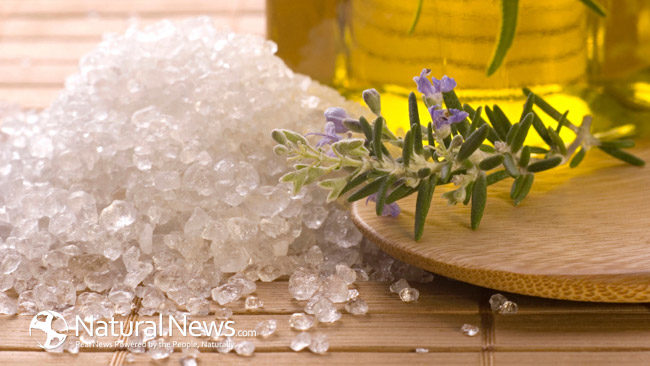In our modern world of technology and instant information, anxiety has become a much more prominent long-term problem than it has ever been in our species’ existence. Our fight or flight response evolved to save us from impending danger: a predator attacking us, hunting our prey, or running from a stampede. Fast forward to 2015, and today we walk around with our fight or flight response fully engaged all day long via our never-ending mental stream of consciousness. There is no animal chasing us, there is no impending need to run or fight, there is simply mental anxiety.
So how can we combat this anxiety in a natural way without turning to pharmaceutical medications and monthly visits to a doctor for a prescription? While Big Pharma would love for us to believe they have all the answers to our issues, Mother Nature herself has provided us an arsenal of natural remedies to just about everything, including anxiety. Here are the top 5 herbs to reduce anxiety:
1.) Lemon Balm
Lemon Balm is a member of the mint family, and it’s leaves give off a sweet tantalizing lemon-candy scent. It has been used for hundreds of years to reduce stress, and it is particularly good at easing anxiety. While most studies showing lemon balm’s efficacy involve the use of multiple herbs, lemon balm is most definitely effective on it’s own. One study looked at those who took 300-600mg of lemon balm for a week and a placebo group who were given nothing. Those who took lemon balm reported better mood and increased feelings of calmness and alertness. While most anti-anxiety drugs on the market do in fact reduce your anxiety, they also reduce your alertness and cognitive function. Lemon Balm gives you the best of both worlds.
A typical dose is 300mg-600mg two to three times a day as needed.
2.) Lavender
Lavender is a very common and recognizable fragrance used for everything from candles to air fresheners. To only use this plant for it’s scent would be a shame, as it has well established physiological effects. Lavender has been used for thousands of years as a calming agent, and was used to treat depression, anxiety, and stress. Lavender’s role in combating anxiety has been well researched and confirmed. When used as an aromatic and inhaled, lavender has a calming and sedative effect. Not only will using this herb for aromatherapy enhance your mood and reduce your anxiety, it will make your house smell great.
For use as an aromatic: boil a few cups of water and transfer to a bowl. Put a few drops of lavender essential oil in the water and inhale.
3.) Ashwagandha
This herb has been a staple of Ayurvedic Medicine for centuries. It not only works to reduce stress and anxiety, but provides many protective properties to the body as well. It is a powerful anti-oxidant, and it is being researched as a potential treatment for Alzheimer’s and Parkinson’s. Ashwagandha is classified as an adaptogen, which means it helps the body deal with stress and helps increase endurance and performance. Ashwagandha is a rejuvenating herb that will help combat anxiety without making you tired or drowsy.
A typical dose is 600mg twice daily.
4.) Chamomile
Chamomile is popular as a tea, but it’s physiological effects on the body are often overlooked. When we need to relax and reduce anxiety, making a cup of tea is not exactly at the top of the list for quick-fixes, but a cup of chamomile tea can provide the reduction in anxiety you are looking for without making you groggy and tired. While chamomile is largely understudied, one randomized controlled clinical study looked at a group of people with generalized anxiety disorder (GAD) and found all participants who took chamomile had a reduction in symptoms.
Chamomile is best enjoyed as a tea. Steep for 5-10mins and relax!
5.) Passionflower
Passionflower has been used for centuries to reduce anxiety and stress, as well as insomnia and seizures. It works by increasing the production of GABA in the brain, an inhibitory neurotransmitter that calms brain function and relaxes you. Like many herbs, passionflower has been largely studied with a group of different herbs, so it’s hard to judge efficacy alone. However, one study looked at 36 participants with GAD and found passionflower was as effective as the benzodiazepine “Oxazepam” in treating generalized anxiety disorder.
Passionflower is available in many forms including tea, tincture, and liquid extract. Dosing will vary depending on form.
Reducing Anxiety Starts With Nutrition and Health
Ultimately, anxiety is a part of life, and a certain amount of it is healthy and productive. When left unchecked however, it can cascade into an endless cycle of negative thinking and mental illness. While Mother Nature’s gifts for us in the form of herbs are great treatments for anxiety, we cannot forget the importance of our basic protective mechanisms against disease.
Proper nutrition, clean water, adequate sunlight, daily movement, fresh air, and positive social relationships are the building blocks to our mental and physical health. In the end, when we need something to help us deal with anxiety acutely, these five herbs provide us a natural alternative to side-effect inducing drugs that simply cover up the root of the issue.
References:
http://umm.edu/health/medical/altmed





